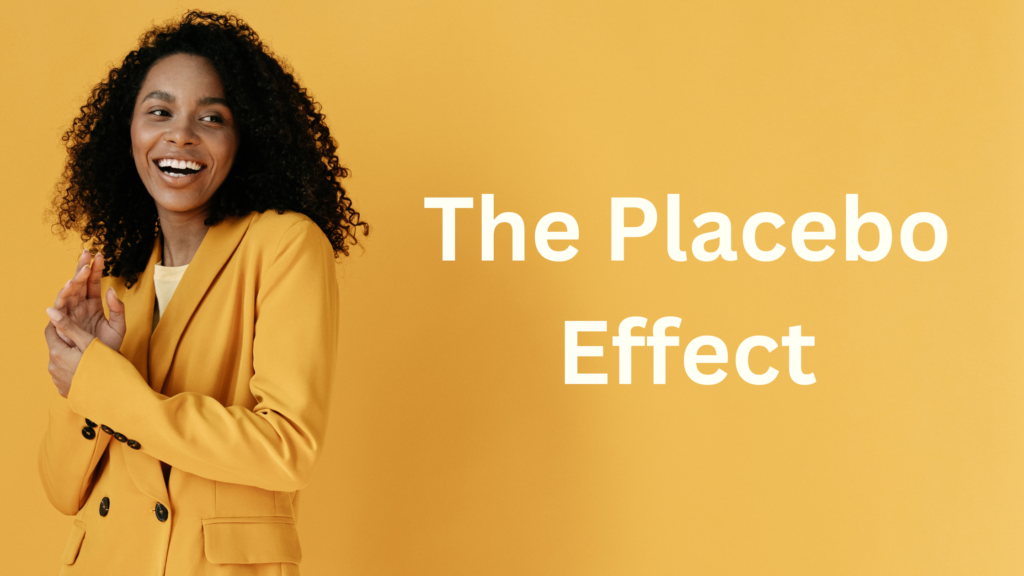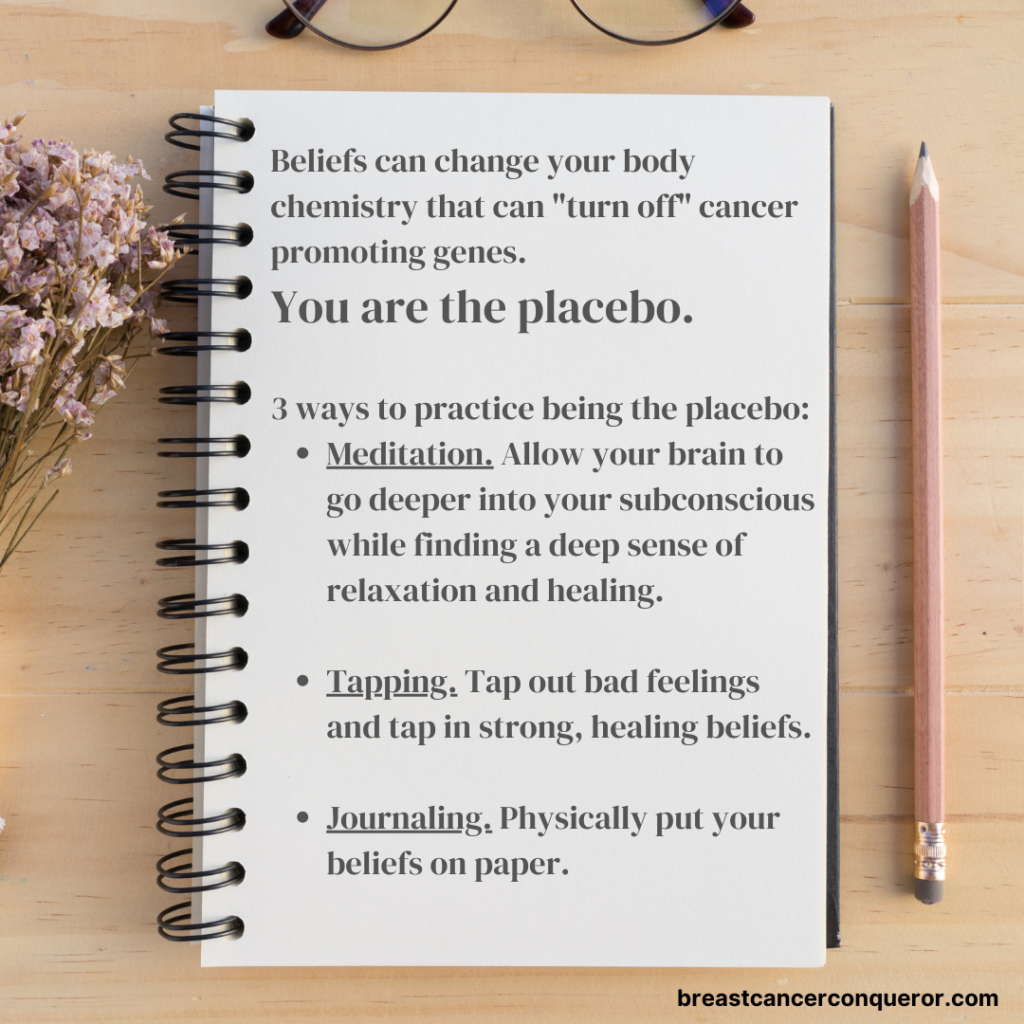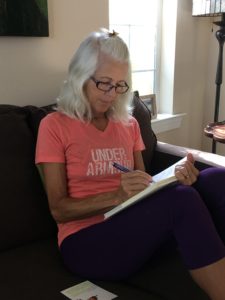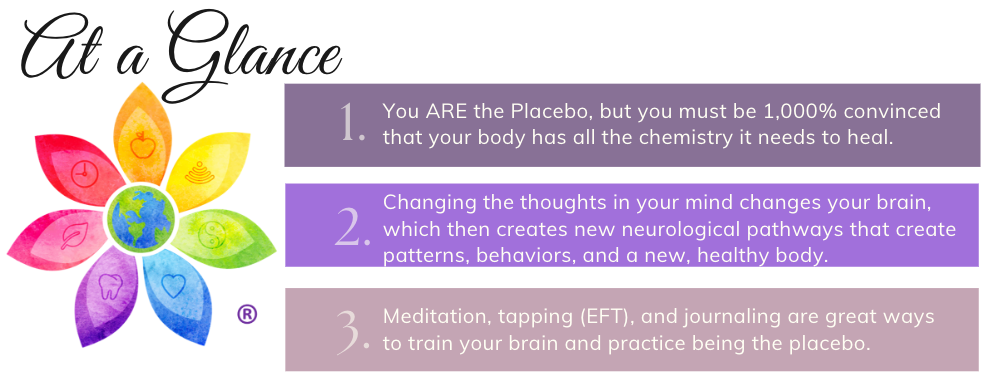
Please note: Healing by thought is just ONE of the tools you can use on your healing journey. It absolutely should NOT be the only tool.
“We all have our own personal limits — whether they are related to our ability to create abundance in our life, our capacity to make some type of change in our health or our body, our inability to stop recreating the same outcomes, or just our ability to believe in ourselves. When we step beyond our limitations, we become more unlimited.” – Dr. Joe Dispenza
Definition (The Oxford Dictionary):
pla·ce·bo
Noun
- A harmless pill, medicine, or procedure is prescribed more for the psychological benefit to the patient than for any physiological effect.
- A substance that has no therapeutic effect, is used as a control in testing new drugs.
- A measure designed merely to calm or please someone.
The Placebo Effect works, but you must be 1,000% convinced that your body has all the chemistry it needs to heal.
Dr. Joe Dispenza’s book, You Are The Placebo (purchase on Dr. Dispenza’s website or download a free PDF here) says, “If you begin the inner journey and start to change your inner world of thoughts and feelings, it can [eventually] create an improved state of well-being. If you keep repeating the process in meditation, then in time, epigenetic changes should begin to alter your outer presentation—and you become your own placebo.”

Mr. Wright’s Story
Here is an INCREDIBLE example that Dr. Dispenza talks about in his book:
Mr. Wright had advanced lymphoma, with tumors as large as oranges! He was febrile, gasping for air, bedridden, and terminal. Then his doctor told him about this new drug called Krebiozen that would “cure” his cancer. The tumors were melting like snow in a few days, and he was laughing and joking. In another ten days, Mr. Wright was sent home! Two months later, the media reported that the new drug was a failure. It was taken off the market. Mr. Wright relapsed immediately, and the tumors returned aggressively.
His wise doctor told Mr. Wright not to believe the media since they were talking about the old batch of Krebiozen. He had just obtained a new powerful batch that was twice as strong. In reality, however, there was no such thing; his doctor just injected him with a saline solution. The doctor figured he had nothing to lose since his patient was terminal. Again, the nodes vanished, and Mr. Wright was well again! Several months went by. Then the AMA announced that the drug was not effective at all. Mr. Wright no longer believed in the possibility of healing from the drug, cancer returned, and he tragically passed away.
Inside Your Brain
Think about it. TWICE Mr. Wright recovered because he BELIEVED the Krebiozen would heal his body. So how did his fervent belief in healing actually heal him—until he stopped believing?
His mind (his thoughts) created biochemical changes in his body that literally “turned off” the cancer-promoting genes and “turned on” the healing and protective genes that destroyed cancer and restored his health and vitality.
Your beliefs can actually change your body chemistry. What if you used the 5% of your conscious mind to become more aware of your subconscious mind that runs 95% of your brain and actions? Imagine your power over healing, creativity, business, social interactions, and living the life you want! Changing your thoughts changes your brain. It then develops new neurological pathways that create patterns, behaviors, and a new, healthy body.
The Placebo Effect Studies
There are countless studies on The Placebo Effect, and below are two that I found fascinating.
Harvard Health recently wrote an article on the placebo effect in 84 trials of a nerve pain treatment over a 23-year observation period. “The researchers found that the placebo effect has become remarkably stronger, but this observation was only noted in U.S. studies. Why? One theory is that the flood of direct-to-consumer drug advertising in the U.S. (which is not allowed in most other countries) increases patients’ expectations that medication will help them.”
A study conducted at the University of Alabama conducted a placebo effect study aimed to help cancer thrivers reduce fatigue. Even though the participants knew they were taking a placebo pill, reported a 29% clinically meaningful improvement in fatigue severity. Even more interesting: “Participants still had benefits three weeks after they stopped taking the placebo pills, which hasn’t been shown before,” said Kevin Fontaine, Ph.D., co-author and chair of the Department of Health Behavior in the UAB School of Public Health. “The extension of benefits even when the placebo pills are discontinued has been a surprise finding that has many placebo researchers excited.”
In conclusion, the placebo effect CAN work.
The Daily Practice The Placebo Effect
You Are The Placebo, the book (buy on Amazon Prime) and concept empowered me to understand even more deeply that our bodies are equipped with the biological and neurological information we need to heal–only if we take the time to still our minds and “talk to our bodies” for at least 30 minutes per day! The act of practicing your new habit is something that must happen daily. Below are a few tools you can use to go deeper—accomplish a resolution, truly believe you will heal, break a habit, change your perception, smash addiction, etc.
Meditations
Dr. Joe Dispenza provides a wide range of guided meditations for adults and children that transform lives. You can also learn different meditation tips and techniques via my blog post. The science is there. Countless studies also have similar conclusions to this study: “Meditation has shown positive effects in reducing physical and emotional symptoms such as psychological stress, depression, anxiety, fatigue, fear of recurrence and rumination, representing an efficient strategy for coping with the disease and improving quality of life.”
Tapping/EFT
This technique uses a combination of light acupressure tapping, visualization, and vocalization. The goal is to honestly address stressful situations, thoughts, bad habits, and feelings. Scientific research has proven that tapping on these acupuncture points calms the stress response, allows you to go deeper into accomplishing a resolution that involves breaking a habit, and empowers your body to heal. “Tapping out” feelings during even mild stress can turn negative thoughts into acceptance and positive perceptions, sometimes within minutes. A 2016 study found that those with the highest amount of emotional acceptance and belief in healing had the lowest rates of cancer-related inflammatory cytokines.
Like meditation, tapping is free and can be done anywhere—I often combine them! To learn more, check out my blog post on tapping and this podcast episode on using energy medicine for healing. Lastly, do not pass up Dr. Church’s EFT Manual. It’s free for the BCC community and includes an audio track that guides you in affirming your resilience and the strength of your immune system.
Journaling 
In a study, writer WM Digglemann states that “stories are weapons against disease.” I love this quote because it is a testament to the power of sharing our stories in encouraging healing mechanisms. Journaling is about more than just scribbling on a notepad. It is a proven modality for healing. It’s physically putting your beliefs on paper, writing down, in ink, that you are healing and getting better each day. Write it again and again. Write a poem about healing, or just scribble down a few phrases—all that matters is that you are training your brain to believe it!
You are the captain of your ship and the master of your fate. Make your fate a happy, healing one! You are the placebo.
And you don’t have to navigate the voyage to vibrant health by yourself. You can bring along a brilliant co-captain to help you find a course that suits your unique needs. Working with a Breast Cancer Conqueror Coach can be your ticket to smooth, confident, and happy healing.
P.S. I highly recommend Dr. Dispenza’s book to anyone on a healing path–whether physical, mental, emotional, or financial. One caveat: there are a couple of chapters where he discusses suggestibility and hypnotism. As a Christian, I am not endorsing the use of hypnotism since Jenovah God’s Word, The Bible, strongly warns against the use of it.

